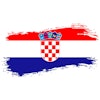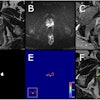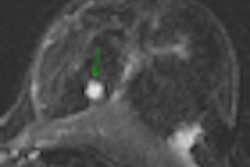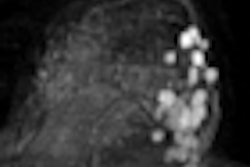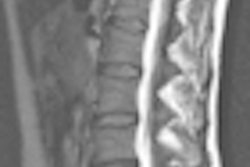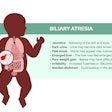
NEW YORK (Reuters Health) - MRI cannot accurately predict all breast cancer patients' response to neoadjuvant therapy, according to new Dutch research.
Although MRI accurately detected disease response to neoadjuvant chemotherapy for triple-negative and HER2-positive subtypes, there was no predictive effect for ER-positive/HER2-negative disease, the most common disease type in the study.
"On the basis of these findings, we recommend caution when interpreting the response of ER-positive/HER2-negative breast tumors during (neoadjuvant therapy) using MRI," say the investigators, led by Dr Claudette Loo, a radiologist at the Netherlands Cancer Institute-Antoni van Leeuwenhoek Hospital in Amsterdam.
The study was published online January 10 in the Journal of Clinical Oncology.
Included were 188 patients: 47 with triple-negative disease, 38 with HER2-positive disease, and 103 with ER-positive/HER2-negative disease. Before treatment, patients underwent a baseline MRI that assessed tumor size and shape.
Depending on disease type, patients were then given one of four courses of neoadjuvant chemotherapy. Nonresponsive patients in each group were switched after three weeks.
Patients received a second MRI at six or eight weeks during neoadjuvant chemotherapy, and after chemotherapy was finished all patients then underwent either breast conserving therapy or mastectomy.
Investigators used two methods to test the sensitivity of MRI for determining response to neoadjuvant chemotherapy -- receiver-operator characteristic curves using simply the presence or absence of disease after treatment and Pearson's correlation coefficient using the breast response index scale. MRI values were based on largest tumor diameter when each of the two MRI readings was taken.
Although overall there was an association between patients' response to therapy and their change in MRI, when patients were divided by disease subtype, the association only held true for triple-negative and HER2-positive disease types. There was no statistical association between patients' response to neoadjuvant therapy and their pattern of tumor reduction assessed using MRI.
These findings were mimicked when investigators looked at the relationship between patients' response to therapy using the breast response index 0-1 scale.
The investigators had hoped that MRI might be able to predict breast cancer patients' response to chemotherapy early in the neoadjuvant timeline, so that regimens might be adjusted. Furthermore, if MRI were an accurate marker for complete response, some patients might be spared surgery after neoadjuvant treatment. However, the many different subtypes of breast cancer will make it difficult for MRI to become a universal tool for gauging patients' response to neoadjuvant therapy.
"It is now widely accepted that breast cancer is not a single disease but rather comes in several subtypes with different pathology, prognosis, and treatment," the authors write.
"Our findings show that the imaging characteristics of these subtypes differ as well and that response to chemotherapy can be measured accurately by MRI in some, but not in the largest subgroup (ER positive/HER2 negative)."
Source: http://bit.ly/fF8xhT
J Clin Oncol 2011.
Last Updated: 2011-01-10 18:39:27 -0400 (Reuters Health)
Related Reading
DETECT: Gadobenate dimeglumine preferred for breast MR contrast, December 22, 2010
MRI screening effective for women with breast cancer history, December 2, 2010
Breast MRI improves survival rates for at-risk women, November 17, 2010
Breast MRI excels at high-risk screening; mammo not needed, February 26, 2010
MRI plus film-screen mammo screening works for BRCA1 carriers, February 23, 2010
Copyright © 2011 Reuters Limited. All rights reserved. Republication or redistribution of Reuters content, including by framing or similar means, is expressly prohibited without the prior written consent of Reuters. Reuters shall not be liable for any errors or delays in the content, or for any actions taken in reliance thereon. Reuters and the Reuters sphere logo are registered trademarks and trademarks of the Reuters group of companies around the world.
